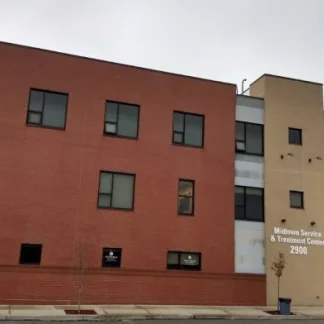Black Alcohol - Drug Services
Black Alcohol – Drug Services is a private rehab located in Saint Louis, Missour...
The Salvation Army Harbor Light Center is a drug and alcohol rehab facility located in Saint Louis MO. It is dedicated to combating addiction and providing comprehensive support to adults seeking recovery.
With a compassionate and holistic approach, Harbor Light Center offers a range of services through their levels of care which include:
The residential treatment service is made available free of charge to provide a structured and supportive living environment as patients engage in the recovery process. This includes counseling, group therapy, life skills development, and educational programs to address the underlying causes of addiction and promote personal growth.
The program provides housing assistance to veterans and individuals experiencing homelessness or housing instability. This may include emergency shelter, transitional housing, or permanent supportive housing options.
Peer support groups and counseling services are available to provide a safe space for patients to share their experiences, seek guidance, and build a strong support network with fellow veterans who understand their unique challenges.
Contact us for more information: (314) 652-3310

Connect with Salvation Army - Harbor Light Center by calling their admissions team directly.
(314) 652-3310 Website Get DirectionsResearch clearly demonstrates that recovery is far more successful and sustainable when loved ones like family members participate in rehab and substance abuse treatment. Genetic factors may be at play when it comes to drug and alcohol addiction, as well as mental health issues. Family dynamics often play a critical role in addiction triggers, and if properly educated, family members can be a strong source of support when it comes to rehabilitation.
Group therapy is any therapeutic work that happens in a group (not one-on-one). There are a number of different group therapy modalities, including support groups, experiential therapy, psycho-education, and more. Group therapy involves treatment as well as processing interaction between group members.
Group therapy is any therapeutic work that happens in a group (not one-on-one). There are a number of different group therapy modalities, including support groups, experiential therapy, psycho-education, and more. Group therapy involves treatment as well as processing interaction between group members.
Black Alcohol – Drug Services is a private rehab located in Saint Louis, Missour...
Queen of Peace Center at Cathedral is a private rehab located in Saint Louis, Mi...
Washington Avenue Annex, part of the VA Saint Louis Health Care System, is locat...
Chestnut Health Systems - Madison Recovery provides clinical support and case ma...